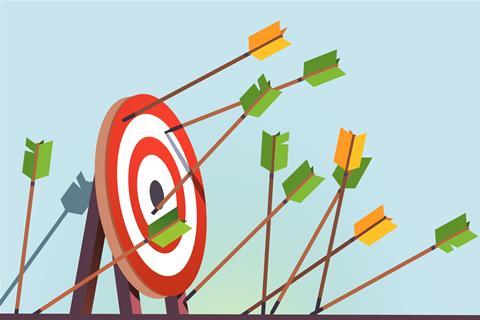Why testing will boost your students’ performance, regardless of their prior achievement

In a recent study, researchers demonstrated that giving students short, topic-specific quizzes after an exam improves their chemistry learning performance.
We often use testing to quantify how much knowledge students have gained. However, tests can also contribute to learning. This testing effect is defined in early psychology literature as a boost in learning due to actively retrieving information for some sort of test. Results consistently show that any form of testing is better than rereading or restudying.
Flavours of testing
There are two flavours of the testing effect. Testing previously studied information improves retention of that information. This is known as the ‘backward testing effect’. The ‘forward testing effect’ refers to retention of new information through testing.
The forward testing effect also means that testing can make students better at retrieving information, whether or not that specific information was on the test. This isn’t fully understood, but seems to hold out in practice.
Testing in chemistry
Researchers at the University of Florida in the US examined how the forward testing effect enhances students’ learning of chemistry. Few previous investigations have studied the forward testing effect in chemistry.
Significantly, the researchers carried out their investigation in the classroom, rather than in laboratories where much of the research into testing effects is done. They presented 146 university students on a general chemistry course with four term-time exams. Three retrieval quizzes followed each of the exams. The quizzes were based on the topics of the previous exam and participation in the quizzes was voluntary. There was also a final course exam.
Students who completed more than 50% of the retrieval quizzes performed significantly better on the final exam than those who were at below 50% participation. There was no difference in performance between students who completed slightly more than 50% or much more than 50% of the quizzes. Importantly, students’ prior achievement levels had no impact on whether they chose to participate in the quizzes. This suggests the method would not introduce further biases between students with different abilities.
Teaching tips
- Allow students to correct misunderstandings and strengthen their retention of already understood material through further testing.
- Try the retrieval quizzes used in this study – they are a low-stress and low-stakes tool that can be added around your existing practice.
- This study used a multiple choice question format for the retrieval quizzes. You could use a different type of recall question, for example, short answer or free recall (write-all-you-can).
- Remember there are additional ways to improve students’ study strategies beyond rereading or highlighting. For more ideas, check out these articles from the 7 simple rules series on retrieving knowledge and revisiting knowledge to improve recall.
Teaching tips
- Allow students to correct misunderstandings and strengthen their retention of already understood material through further testing.
- Try the retrieval quizzes used in this study – they are a low-stress and low-stakes tool that can be added around your existing practice (LINK).
- This study used a multiple choice question format for the retrieval quizzes. You could use a different type of recall question, for example, short answer or free recall (write-all-you-can).
- Remember there are additional ways to improve students’ study strategies beyond rereading or highlighting. For more ideas, check out these articles from the 7 simple rules series on retrieving knowledge (LINK) and revisiting knowledge to improve recall (LINK).
References
K Todd et al, Chem. Educ. Res. Pract., 2020, DOI: 10.1039/d0rp00185f









No comments yet